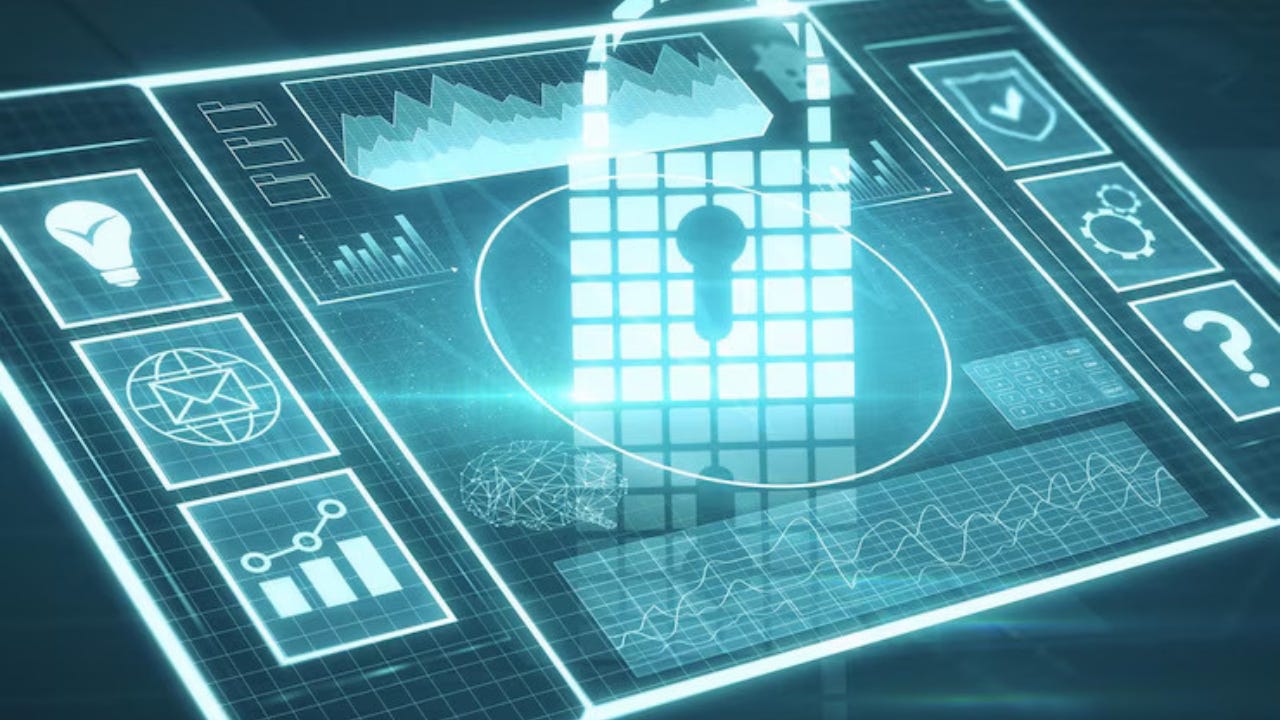Cybersecurity in Hospital Information Management Systems : Complete Guide 2025
Want to keep hospital info secure? Get expert advice on cybersecurity for health systems. Stay safe with easy-to-follow tips this year.
In 2025, Saudi Arabia is leading a digital transformation in healthcare. At the core of this revolution is the hospital information management system, a powerful digital infrastructure designed to streamline clinical, administrative, and operational processes across hospitals. But as this digitization expands, cybersecurity becomes not just important—it becomes essential.
Cyberattacks targeting hospitals are increasing globally. In 2023 alone, healthcare data breaches impacted over 100 million patient records worldwide, costing the industry billions. For Saudi Arabia, where Vision 2030 aims to establish world-class smart hospitals, ensuring the hospital information system is secure against cyber threats is critical.
This comprehensive guide explores everything you need to know about cybersecurity in hospital information management systems in Saudi Arabia in 2025. We'll dive deep into current threats, best practices, regulatory frameworks, and how top software providers like SISGAIN are leading the way with secure, intelligent, and scalable healthcare solutions.
Why Cybersecurity in Hospital Information Systems Matters More Than Ever in 2025
A single breach of a hospital information system can compromise patient privacy, interrupt clinical operations, and expose institutions to massive financial and legal liabilities.
In 2025, as Saudi Arabia aggressively advances its health information system and integrates technologies like AI, IoT, and telemedicine, the attack surface has grown exponentially. Connected medical devices, cloud-based hospital management software, and remote access all bring unique security challenges.
Cybersecurity in this landscape is no longer optional. It’s a mandatory pillar of patient safety, data integrity, and regulatory compliance. Saudi Arabia’s Ministry of Health (MOH) and the Saudi Data and Artificial Intelligence Authority (SDAIA) are continuously evolving their guidelines to ensure every hospital management system meets national cybersecurity standards.
Current Cybersecurity Landscape in Saudi Arabia’s Health Sector
Saudi Arabia has made great strides in securing digital healthcare services. The launch of the Saudi Health Information Exchange (SeHE) and the Health Sector Transformation Program under Vision 2030 have laid the foundation for a unified, secure hospital information management system network.
Despite these efforts, cybersecurity incidents remain a threat. In the past two years, healthcare facilities in the Gulf Cooperation Council (GCC) region—including Saudi Arabia—have experienced targeted ransomware attacks and phishing campaigns. These attacks not only lock vital hospital data but also halt life-saving operations.
Healthcare cybersecurity in Saudi Arabia is being fortified with national programs that include:
The National Cybersecurity Authority’s frameworks
Integration of the Saudi Health Information Exchange
Real-time incident monitoring through the National Health Command Center (NHCC)
However, hospitals still need strong internal protocols, proactive software solutions, and compliance with MOH standards to ensure full protection.
Common Cyber Threats to Hospital Information Management Systems
One of the reasons cybersecurity in the healthcare domain is so complex is due to the diversity of threats. The hospital information system is not a single software—it’s an interconnected network of databases, medical devices, patient portals, billing systems, and administrative tools. Here are the most common threats hospitals in Saudi Arabia face in 2025:
Ransomware Attacks
Ransomware continues to be the number one threat. These attacks encrypt hospital data and demand payment in cryptocurrency for its release. A ransomware attack on a hospital management software system can paralyze operations, from emergency room procedures to patient record access. Saudi hospitals are increasingly targeted, and without proper backups and endpoint protection, the impact can be catastrophic.
Phishing and Social Engineering
Phishing emails remain a preferred method for hackers to infiltrate a hospital management system. These emails trick staff into revealing credentials or downloading malware. In a clinical setting, where staff may overlook cyber warnings in the rush of patient care, this is a serious risk.
IoT Device Vulnerabilities
Smart beds, infusion pumps, and wearable health monitors are connected through the health information system. If left unsecured, these IoT devices can become entry points for hackers to access broader hospital networks. Lack of regular patching and weak authentication make them an easy target.
Data Breaches and Insider Threats
In many cases, the threat doesn’t come from outside but from within. Employees accessing records without proper authorization or inadvertently misusing data can cause compliance failures and breaches. A robust hospital information management system must include role-based access controls and audit logs to minimize these risks.
Third-party Software Vulnerabilities
Many hospitals rely on external vendors for laboratory systems, billing solutions, or telemedicine platforms. If these third-party apps are not secured, they can serve as backdoors into the hospital's core systems.
Key Cybersecurity Features in Modern Hospital Information Systems
To counter rising threats, today’s hospital information management system platforms must be built with robust cybersecurity features from the ground up. Here are some of the critical components that Saudi hospitals should prioritize:
Data Encryption at Rest and in Transit
All patient and hospital data must be encrypted—whether it's stored in databases or moving across networks.
Role-Based Access Control (RBAC)
Not every hospital staff member should have access to all data. RBAC ensures that each user only accesses the information required for their job function. This minimizes risk and supports compliance with Saudi data protection laws.
Multi-Factor Authentication (MFA)
MFA adds an extra layer of security by requiring two or more credentials before access is granted. This is vital for remote access to hospital management software, especially with the rise of telehealth.
Regular Patch Management
Vulnerabilities in operating systems, apps, and devices must be patched immediately. Automated update management should be part of every hospital management system to prevent exploitation by hackers.
Audit Logs and Real-Time Monitoring
Comprehensive logging tracks every system interaction and allows hospital administrators to detect unusual behavior. Real-time alerts can signal unauthorized access attempts or suspicious activity.
Cloud Security and Data Backup
Many hospitals are moving their hospital information system to the cloud for scalability. However, cloud security policies must include firewalls, secure API gateways, data redundancy, and geographic failover options to protect data integrity.
Compliance and Regulatory Requirements in Saudi Arabia
Cybersecurity in healthcare isn't just about best practices—it's a legal requirement. Saudi Arabia enforces strict regulatory frameworks that every hospital information management system must comply with.
Ministry of Health (MOH) Guidelines
The MOH outlines requirements for electronic health records (EHR), patient privacy, and digital infrastructure. Compliance with these rules ensures that hospitals operate within national healthcare policies.
Saudi Health Information Exchange (SeHE)
SeHE is designed to unify healthcare data across Saudi Arabia, allowing hospitals to share patient records securely. All participating systems must meet its interoperability and security standards.
National Cybersecurity Authority (NCA) Regulations
The NCA provides national cybersecurity frameworks that apply to healthcare institutions. Hospitals must adopt these standards for system architecture, access control, incident response, and risk assessment.
How SISGAIN Leads with Secure Hospital Management Software
Choosing the right vendor is critical in defending against cyber threats. SISGAIN stands out as the best provider of secure, scalable, and compliant hospital management software in Saudi Arabia. Their solutions are designed not just for functionality, but with cybersecurity at the core.
End-to-End Security Architecture
SISGAIN integrates robust encryption, role-based access, and secure APIs within all its hospital information management system deployments. Every layer is fortified against internal and external threats.
Cloud-Native and MOH-Compliant Solutions
With cloud-native infrastructure, SISGAIN enables hospitals to scale while meeting Saudi MOH standards and local data residency requirements. Their systems offer automatic backups and geographic failover to protect data during outages.
Continuous Updates and Threat Intelligence
Cyber threats evolve fast, but so does SISGAIN. Their hospital information system receives regular updates, with the latest threat intelligence integrated into security protocols, ensuring hospitals stay ahead of hackers.
Customizable Access and Audit Controls
Their hospital management system comes with customizable access rights and real-time audit trails, empowering hospitals to track user activity, maintain accountability, and meet auditing requirements effortlessly.
Seamless Integration with Third-party Tools
SISGAIN ensures secure integration with labs, pharmacies, billing systems, and even telemedicine apps, allowing hospitals to build a comprehensive digital ecosystem without compromising on cybersecurity.
Future of Cybersecurity in Health Information Systems
In the next five years, cybersecurity in healthcare will become more predictive than reactive. Saudi Arabia is expected to invest heavily in AI-driven threat detection, blockchain for data integrity, and national health ID integration. Hospitals must be ready to evolve their health information system capabilities in line with these innovations.
Machine learning will play a major role in detecting anomalies, while biometric authentication may replace traditional passwords. SISGAIN is already working on integrating such technologies into its next-gen hospital management software to keep Saudi healthcare ahead of global trends.
Read More :- Best Hospital Management System in Saudi Arabia : Complete Information
Conclusion
Cybersecurity is no longer an IT issue—it's a patient safety issue. As Saudi Arabia marches toward a digital health future under Vision 2030, the role of a secure and compliant hospital information management system is more vital than ever. From ransomware attacks to insider threats, the digital battlefield is real, and hospitals must fortify their systems now.
Choosing the right software partner, like SISGAIN, ensures not only compliance with national laws but also the trust of patients, doctors, and regulators alike. Their robust, customizable, and secure hospital information system solutions are perfectly tailored for Saudi Arabia’s unique healthcare ecosystem.
By investing in proactive cybersecurity, hospitals don't just protect data—they save lives, optimize operations, and build a healthcare system worthy of the digital age.
Let SISGAIN guide your hospital into a safer, smarter, and more secure future.Need a secure and customizable hospital management system in Saudi Arabia?
Contact SISGAIN today and build a healthcare platform that’s secured by design and trusted by patients.
Email :- hello@sisgain.ae
Phone No :- +971-56-848-5757
Location:- Saudi Arabia





